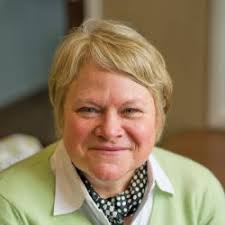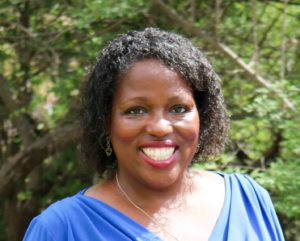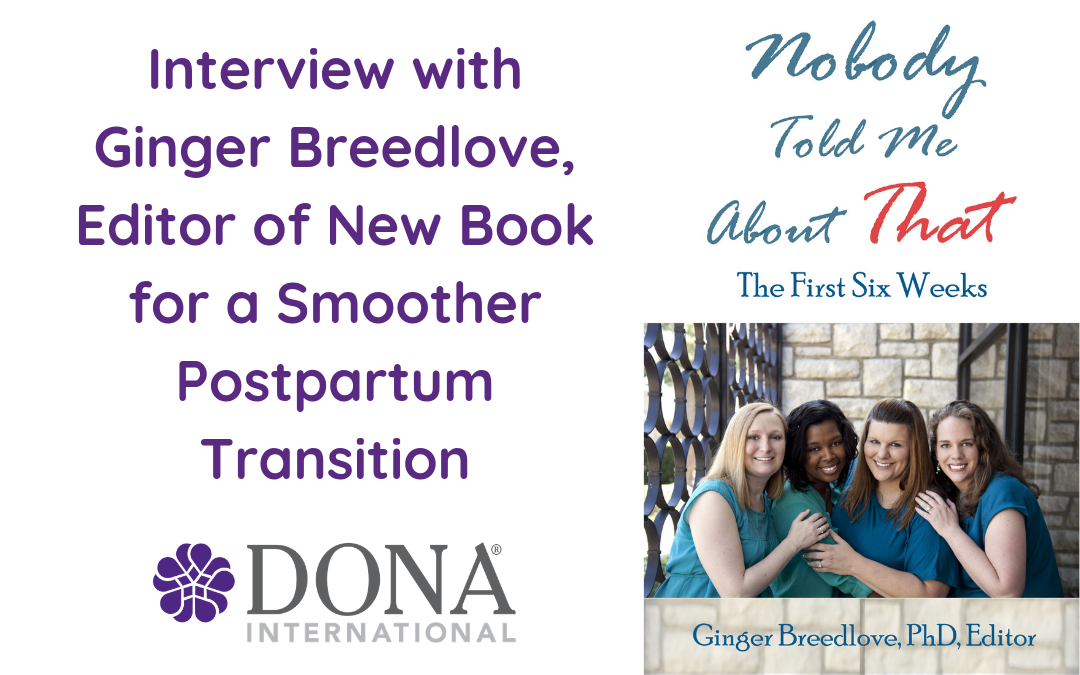It’s been often said that we don’t know what we don’t know. That statement rings true during the postpartum period and most especially during those first six weeks if you are a new parent. There’s a new book on the scene which seeks to bring to light many of the lesser known facts and experiences of parents and families in the early postpartum period. The book, “Nobody Told Me About That: The First Six Weeks” is a collaboration of chapters or even small booklets written by caregivers and professionals who serve those families. The following is an interview with the brainchild and editor of the project, Ginger Breedlove. Amongst many titles, Ginger is best known as a certified nurse midwife, former president of American College of Nurse-Midwives, a former lecturer at the University of Kansas School of Nursing, and founder of Grow Midwives consulting firm. Ginger is also one of the original founders of March for Moms.
Tonja Carpenter: Why did you feel this type of book was needed?
 Ginger Breedlove: I have observed for some time the gap in education, preparedness, and the truth about childbirth and early parenting. Maybe because the type of ‘birth classes’ that most families take today have fewer sessions, fewer hours, more focus on giving birth in “this” hospital vs focusing on readiness for labor and birth and resources for parenting. Then, when our first grandchild was born in the city I live in, and I could see with my own eyes the lack of adequate education provided by postpartum nurses, as well as lack of resources for first time parenting provided by ANYONE (you don’t see the Pediatrician until AFTER the birth/maybe for 5 minutes every day in rounding and then at 2 weeks) WHO is helping families feel secure and confident when on their own? It only took a few assessments of my checking in on them and repeatedly hearing the phrase, “Nobody Told Me About That” that I knew something had to change. Could not find a US book on Amazon specific only to first-time parents during the first six weeks, so went to UK Amazon and found many. Bought one, the new parents read it cover to cover, and I said to myself, I can make this happen with many of my professional friends and contacts.
Ginger Breedlove: I have observed for some time the gap in education, preparedness, and the truth about childbirth and early parenting. Maybe because the type of ‘birth classes’ that most families take today have fewer sessions, fewer hours, more focus on giving birth in “this” hospital vs focusing on readiness for labor and birth and resources for parenting. Then, when our first grandchild was born in the city I live in, and I could see with my own eyes the lack of adequate education provided by postpartum nurses, as well as lack of resources for first time parenting provided by ANYONE (you don’t see the Pediatrician until AFTER the birth/maybe for 5 minutes every day in rounding and then at 2 weeks) WHO is helping families feel secure and confident when on their own? It only took a few assessments of my checking in on them and repeatedly hearing the phrase, “Nobody Told Me About That” that I knew something had to change. Could not find a US book on Amazon specific only to first-time parents during the first six weeks, so went to UK Amazon and found many. Bought one, the new parents read it cover to cover, and I said to myself, I can make this happen with many of my professional friends and contacts.
TC: What is the message you believe the chapter on infant sleep should convey?
GB: Sleep and infant feeding are the two most concerning issues new parents face in the early weeks. Both parent and newborn sleep as well as baby feeding and growth. Infant sleep is uniquely and biologically designed based on cues of hunger and their own alert/sleep cycles. You will know your baby’s natural sleep/wake cycles by observing periods of activity vs quiet while still in utero. Some sleep longer and others are much more active. Exploring one’s own beliefs about sleep and baby’s sleep routines will set a course for what the baby learns. However, we urge parents to NOT introduce sleep training in the first six weeks of life and allow baby normal cues for feedings to be the principal guide. Babies do not typically sleep for long periods of time until six months.
TC: Why did you find it important to include the voices of parents of color specifically?
GB: The maternal mortality crises impact on average three to four more families of color than white women in America. This includes worse outcomes related to both maternal and infant morbidity and mortality. Parenting advice, resources, and recommendations for families of color from women of color resonates truth. And thru interviews and storytelling, their spoken words lend power to not only surviving but thriving as new parents. Topics such as being ignored when in pain, pressured to use birth control, weight bias and more are openly discussed to guide women and families to find their voice and be heard. As the editor, I am keenly aware of implicit bias and institutional racism that intersects every aspect of US maternity care. Naming it, while providing tools for families was our goal for the inclusion of this chapter. These strong feelings are similar to why we included the chapter on LGBTQ parenting.
TC: When would you recommend a parent read this book?
GB: Ideally, in the second or third trimester, but we have heard several moms enjoyed reading it during the first week as they were in the moment, searching for answers and seeking assurances of normal. I’m not sure there is a “best” time, other than when someone is ready to learn. Despite our hopes to prepare, there are ALWAYS unexpected events and each baby has unique characteristics that can derail even the best-laid plans.
TC: How did you choose which experts to invite to participate in this project?
GB: I first had a focus group at my home with first-time moms willing to share their experiences. The session was recorded and transcribed for themes. Two of the contributing authors were present for this conversation. I then called on colleagues and friends over the years that I knew were experts in the content area and not only willing to write a chapter but passionate about their topic. It worked!
TC: If a parent could not read this whole book, what chapters would you say are a “must read”?
GB: What resonates with them at the moment. The book was written as stand-alone chapters for this reason. Some topics may be of interest, some may be for survival, and some may be educational in general. It would be ideal for new parents to read the book prior to parenting ‘alone’ on day one. But as we say over and over, babies are low-maintenance however they are in need of being held, fed, comforted and allowed to sleep. About every three to four hours!
TC: What do you mean by “near miss” survivorship?
GB: A mom that nearly died at some time in her pregnancy, labor, birth or up to the first few months postpartum. These events happen to between 50-70,000 women/year in the US. Most events happen in the postpartum period and it is estimated 60% are preventable. Why? Moms not understanding the breadth of risks at discharge, inappropriate or late medical follow up plan of care, not being listened to when calling for help, poor access to emergency services and more. We also emphasize the need for women to “find their voice”. To not allow health care providers to dismiss their concerns, and seek help elsewhere rather than deny and delay assistance.
TC: What’s your next project?
GB: I am working on a podcast series now with one of the contributing authors, Michelle Doyle that will be launched this spring. We have five sessions recorded that follows the book chapter by chapter. Interviews and pearls of wisdom are discussed with contributing authors as well as new parents take on the chapters. It’s been a fun experience. We are also excited to have book readings around the country promoting the book. A companion book is in the making with additional topics that were not covered, and focus on what ifs.
TC: What are the main messages parents should take away from this book?
GB: Parenting does not come naturally. It’s about learning and adapting, learning and adapting, learning and then saying to oneself, I’ve got this! When we supplement adaptive learning with intentional learning by reading and seeking additional knowledge, our ability to gain confidence with reduced anxiety and exhaustion is likely to be the result. I love the quote I used in the Learning Normal chapter by A.A.Milne, “Promise me you’ll always remember: You’re braver than you believe and stronger than you seem, and smarter than you think.”
Summary
Thank you, Ginger, for your passion to see families not only survive, rather thrive in the early stages of the fourth trimester. Your idea to bring together the voices of caregivers, professionals, and parents in “one location” to speak to the issue of not knowing what we don’t know in relation to life after childbirth was a good one.
About Tonja Carpenter
 Tonja Carpenter, IBCLC, PCD (DONA) is a graduate of Baylor University with a degree in Finance. After a brief stint in the insurance industry, she raised, and homeschooled her five children for 15 years while serving, mentoring and supporting young mothers in her church and community. She’s been married for over 25 years to Vincent Carpenter and is the owner of both Postpartum Doula Services of Waco, LLC and Lactation Services of Waco, LLC, the only lactation consultant private practice in the city. She created the postpartum doula program at Carenet Pregnancy Resource Center and is currently working to form Community Doulas of Waco, a non-profit organization which will provide birth and postpartum doula support to families that can’t afford one and which train and mentor those who receive services to become doulas themselves. Tonja is an active member at Antioch Community Church, Waco, volunteers once a week tutoring 3rd-grade math at one of the elementary schools in town and is the proud Granny of Jaxon. You can find her on Facebook at Postpartum Doula & Lactation Services of Waco, or on the world wide web at happywacomoms.com
Tonja Carpenter, IBCLC, PCD (DONA) is a graduate of Baylor University with a degree in Finance. After a brief stint in the insurance industry, she raised, and homeschooled her five children for 15 years while serving, mentoring and supporting young mothers in her church and community. She’s been married for over 25 years to Vincent Carpenter and is the owner of both Postpartum Doula Services of Waco, LLC and Lactation Services of Waco, LLC, the only lactation consultant private practice in the city. She created the postpartum doula program at Carenet Pregnancy Resource Center and is currently working to form Community Doulas of Waco, a non-profit organization which will provide birth and postpartum doula support to families that can’t afford one and which train and mentor those who receive services to become doulas themselves. Tonja is an active member at Antioch Community Church, Waco, volunteers once a week tutoring 3rd-grade math at one of the elementary schools in town and is the proud Granny of Jaxon. You can find her on Facebook at Postpartum Doula & Lactation Services of Waco, or on the world wide web at happywacomoms.com



Thank you, Tonja. Ginger is such an amazing lady.